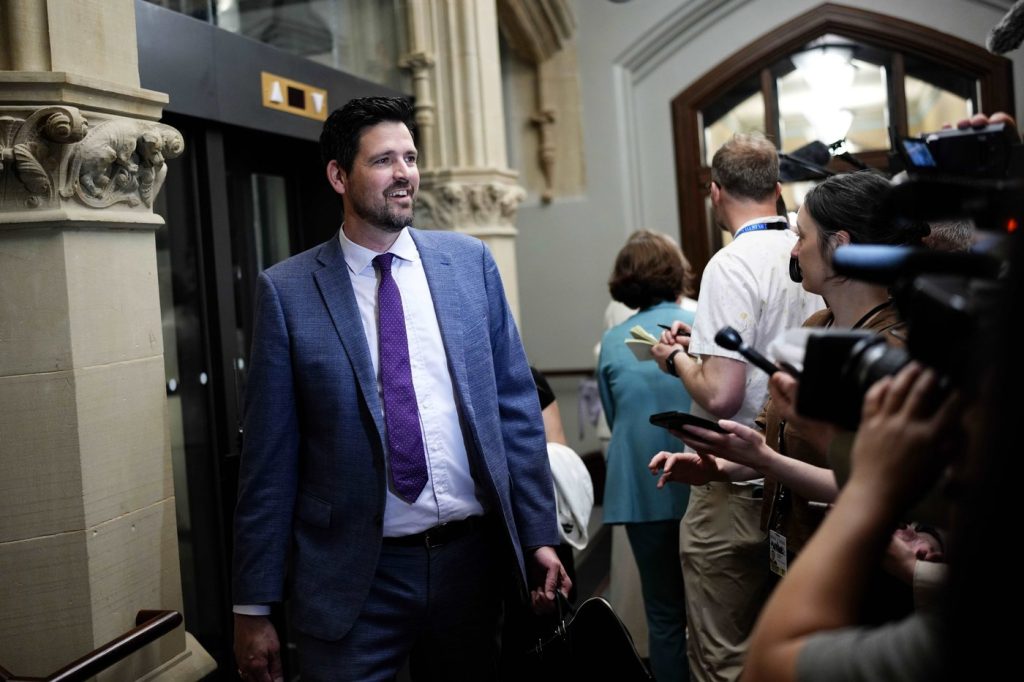OTTAWA Following a recent federal election, the Liberal government has committed to a range of new crime policies, responding to a campaign dominated by Conservative concerns over crime and safety. The Conservatives highlighted issues surrounding crime while the Liberals emphasized the need for stricter measures, particularly targeting violent offenses like car theft. The Liberal government, now a minority, is preparing to implement policies that aim to address these issues while maintaining a focus on serious offenders.
Lisa Kerr, an associate professor at Queen's University law school, noted that the proposed measures are aimed at being tougher on crime but are also targeted specifically at serious offenders. She indicated that these policies are expected to preserve discretion for judges and Crown prosecutors when dealing with individual cases. This reflects an ongoing dialogue in Canada regarding balancing public safety and individual rights.
Among the main proposals are stricter bail and sentencing guidelines for certain crimes. The government is also looking to establish new criminal offenses related to intimidation at educational institutions, places of worship, and online sexual exploitation. This reform initiative has drawn comparisons to past political movements, including the policies enacted under Bill Clinton's presidency, where similar approaches were taken to respond to public fears about crime. Criminology expert Justin Piché mentioned that the current Liberal government appears to want to prevent crime from becoming a persistent political issue.
The election saw Conservative Leader Pierre Poilievre strongly criticizing the previous Liberal government’s policies, branding them as “hug-a-thug” approaches to criminal justice. To counter these perceptions, Poilievre advocated for tougher measures, including mandatory life sentences for multiple offenses. Although some experts flagged potential constitutional issues with these proposals, Poilievre expressed willingness to leverage the notwithstanding clause to push them through.
In contrast, the Liberals are advocating for various policies to enhance public safety, including tightening bail laws for those charged with crimes such as violent car theft, offenses associated with criminal organizations, and serious human trafficking and smuggling cases. Kerr highlighted that establishing a reverse onus for bail in specific circumstances might feel like a reaction to election rhetoric surrounding public safety. However, she pointed out that judges already prioritize public safety when making bail decisions, hinting at a more complex judicial landscape than simple legislative changes would suggest.
Defense attorney Michael Spratt indicated that those already facing charges of serious crimes often have limited chances of securing bail. He noted that promises to intensify scrutiny for individuals on bail or to restrict firearm possession for certain offenders largely reflect current judicial practices rather than introducing new measures. Some of the Liberal promises, he argued, may be perceived as "largely performative" and less impactful than more substantive reforms.
Furthermore, the Liberals have proposed tougher sentencing guidelines particularly targeting repeat offenders involved in car theft and organized crime. They are also looking to criminalize actions that obstruct access to vital community hubs like places of worship and schools. This issue has been prominent, especially following accusations from Jewish organizations regarding insufficient protective measures against hate crimes.
Additional policies proposed by Finance Minister Carney include making the distribution of non-consensual sexual deepfakes a criminal act, along with legislation to combat online sexploitation and extortion targeting children. Kerr viewed the deepfake legislation as a sensible approach to adapting legal frameworks to emerging technological challenges, and Spratt described it as necessary reform relevant to contemporary issues in criminal justice.
The responsibility for implementing these measures will fall to new Justice Minister Sean Fraser. However, it remains uncertain which policies will take precedence as Carney has provided a single mandate letter to his ministers that does not detail specific justice reform priorities. Acknowledging the significance of crime-related issues, Carney has appointed Ruby Sahota as the new Secretary of State for Combating Crime.
Spratt, however, criticized the appointment as merely an act of “eyewash,” suggesting that such appointments are often performative and do not lead to substantive changes in policy or practice.
This report presents the complexities and challenges facing Canada’s criminal justice system in light of changing public perceptions and political pressures related to crime and safety.











